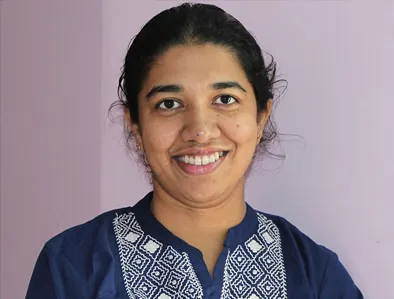The overall teaching and learning experience at Alliance University has been very enriching. With ...
Admission Enquiry
HELPLINE:
+91 81050 14564 / +91 94810 70466
Programs
Ph. D. in Applied Mathematics
Overview
The programme enables students to learn new methods in research to predict the observed, and unobserved phenomena and find solutions to real-world problems.
In today’s world, new challenges and problems arising in all fields require solutions that are precise through numerical methods that involve differential equations, statistics, numerical methods, and analysis.
With a close-knit community of learners working together diligently towards impactful research work, students get an opportunity to create new frontiers of knowledge in the fields of mathematics through quality research and a world-class framework.
Areas of Research
Eligibility
- Applicants holding a master’s degree with minimum 55% marks or equivalent Grade in a point scale as may be prescribed by the UGC from time to time, wherever the grading system is followed.
- Applicants whose result of the final examination of a programme leading to master’s degree is awaited can be given provisional admission if he / she fulfils other requirements for admission. After the provisional admission the candidate will be required to furnish proof of completing master’s degree with minimum of 55% marks within three months from admission failing which his / her admission will be cancelled.
- Applicants holding foreign Degree’s equivalent to that of a Master’s degree study with minimum 55% marks or equivalent Grade in a point scale as may be prescribed by the UGC from time to time, wherever grading system is followed; Provided that applicants with a foreign Degrees shall be admitted to the Ph.D. programme, subject to clearance by the Equivalence Committee of Alliance University.
- Applicants having completed M.Phil. Coursework with a minimum 55% marks in aggregate or its equivalent Grade, in the UGC point scale and those candidates who having their M.Phil. Dissertation evaluated, but viva-voce is pending, maybe may also be admitted to the Ph.D. programme.
- Applicants possessing a degree, approved as equivalent to the M.Phil. Degree in India, obtained from a foreign Educational Institution accredited by the UGC if candidates with a degree from a foreign Institution shall be admitted to the Ph.D. programme, subject to the clearance by the Equivalence Committee of Alliance University.
- Admission of candidates belonging to the SC/ST/OBC, or other reserved categories shall be governed by the Karnataka State Rules in this regard, from time to time.
- Students from a four-year undergraduate programme (with Honors) can enroll directly if they have scored 75% or above, with a 5% relaxation for specified categories as per UGC regulations. Those who have scored between 55% and 75% may qualify after completing either a one-year master's programme or a bridging course of 36-40 credits.
(Refer National Credit Framework NCrF 2024). - For students from a three-year undergraduate programme, Ph.D. eligibility requires the completion of a bridging programme of 36-40 credits along with the necessary coursework.
(Refer National Credit Framework NCrF 2024).
Salient Features
Course Work
Courses:
- Research Methodology – Part A (General)
- Linear Algebra
- Specialisation-specific Paper
- Research Methodology – Part B (Specialisation-specific)
- Real Analysis/Measuring Theory
- Specialisation-specific Assignment
Course Description
Sem I:
- Research Methodology Part A: General (Common subject): This course introduces the students to the importance of systematic approach to research, research ethics, types of research design, research methods, data collection methods, data analysis techniques, and research report writing.
- Linear algebra (Compulsory subject): This course introduces the students to the concepts and techniques of linear algebra, vector space theory, Banach space theory, and Lp space theory. These techniques are widely used in almost all fields of mathematics and statistics and are therefore important for developing a foundation for applied mathematics research.
Sem II:
- Research Methodology Part B: Specialisation-specific (Compulsory subject): General (Common subject): This course introduces the students to research methods in their domain of specialisation.
- Real analysis/Measure theory (Compulsory Subject): This course introduces the students to the concepts and techniques of real analysis, topological theory, measure theory, and differential equations. These techniques are widely used in almost all fields of mathematics and statistics and are therefore important for developing a foundation for applied mathematics research.
Specialisation-specific Assignment:The Specialisation-specific Research Methodology course contents, the Specialisation-specific Paper, and the Specialisation-specific Assignment are to be determined by the candidate’s Research Supervisor in consultation with the Research Advisory Committee.
Contact for Admissions
-
 Call Us
Call Us+91 81050 14564 | +91 94810 70466
-
 Email Us
Email Usphd@alliance.edu.in


